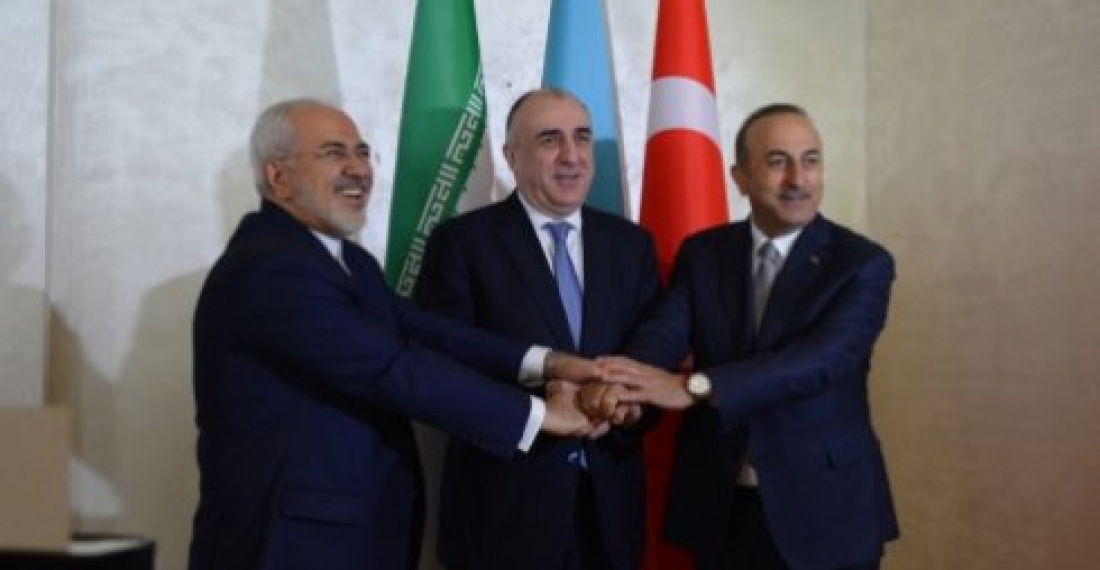The Foreign Ministers of Azerbaijan, Iran and Turkey met in Baku on 20 December for their fifth trilateral meeting, once more highlighting their commitment to further enhance solidarity and cooperation among the peoples of the three countries based on deep-rooted historical, religious and cultural commonalities and shared values that will serve to strengthen peace, stability, prosperity and cooperation in the region.
In a statement issued at the end of the meeting Azerbaijan's Elmar Mammadyarov, Mohammad Javad Zarif, of Iran and Mevlüt Çavuşoğlu. of the Republic of Turkey, underlined their commitment to further expand cooperation particularly in the areas that would contribute to economic progress and sustainable development.
The statement says that the Ministers "emphasized their countries' common interest to strengthen peace and stability in the region and stressed in this context their commitment to principles of international law, including in particular, respect for sovereignty, territorial integrity, inviolability of internationally recognized borders and peaceful settlement of all disputes. They reiterated, in this regard, the importance of the earliest resolution of Armenia-Azerbaijan Nagorno-Karabakh conflict on the basis of the above-mentioned principles."
On Jerusalem, the three countries "welcomed the declaration and final communiqué adopted at the OIC Extraordinary Summit on 13 December 2017 in Istanbul, with regard to Al-Quds Al-Sharif".
The three countries agreed to hold the next meeting in this trilateral format in Turkey.
source: commonspace.eu
photo: The Foreign Ministers of Azerbaijan, Iran and Turkey at their meeting in Baku on 12 December 2017 (picture courtesy of the press service of the Azerbaijan Foreign Ministry).







